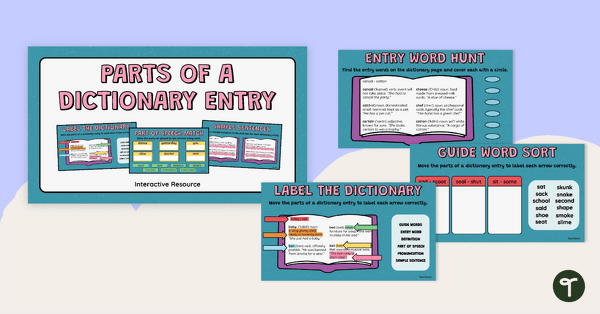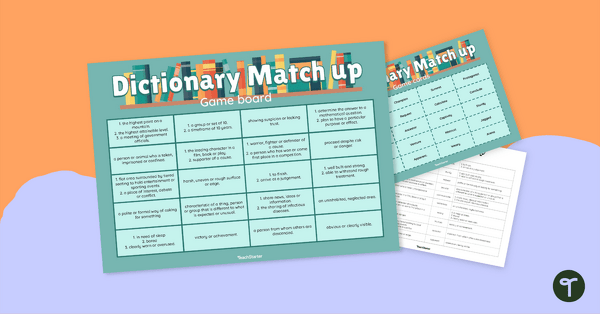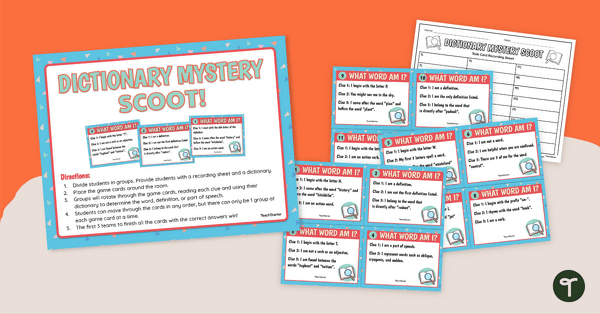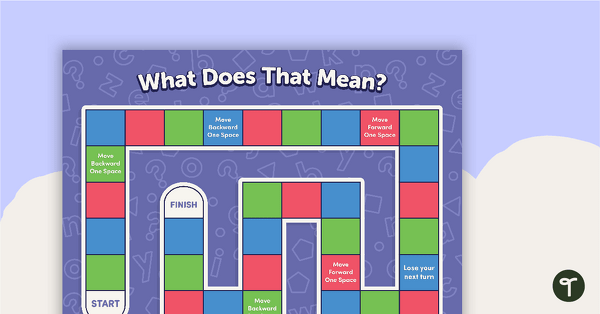Dictionary Skills Teaching Resources
Help students build dictionary skills with printable worksheets, activities and more teaching resources that will help students build their understanding of guide words, dictionary searches, alphabetical order and myriad other elements of this important resource tool!
This curriculum-aligned resource collection was created by teachers for teachers to save you time on your lesson plans with editable options to help with differentiation of instruction for your individual learners.
New to teaching this part of the ELA curriculum or just looking for fresh ideas to engage your learners? Read on for a primer from our teacher team!
What Are Dictionary Skills?
We're talking about the dictionary, so we might as well start with a definition! The term dictionary skills refers to students' ability to effectively and efficiently use a dictionary to look up words, understand their definitions and find information related to those words.
The skills that students typically learn include:
- Knowing How to Find a Word — In order to effectively use this reference tool in school and out, students need to know how to navigate a dictionary to find a specific word, whether it is through alphabetical order, word roots or prefixes, or other search methods.
- Understanding Definitions — This skill includes not just being able to comprehend the meaning of a word based on its definition but also knowing how to interpret different types of definitions, such as synonyms, antonyms, and examples.
- Identifying Parts of Speech — Being able to identify the part of speech of a word — noun, verb, adjective, etc. — is important in understanding its usage and context.
- Using Pronunciation Symbols — Many dictionaries include symbols to indicate how to pronounce a word. Understanding and using these symbols correctly can help students with their pronunciation skills.
- Finding Related Words — Dictionaries often provide information on related words, such as synonyms, antonyms, and word families, all of which students should be able to find. This comes in handy for expanding vocabulary and improving writing skills.
How to Teach Dictionary Skills
When it comes to actually teaching dictionary skills, you may hear from students that they don't need this. After all, definitions are available at their fingertips online. But there's still plenty of value in teaching these skills with a physical book in addition to the digital dictionary versions.
Here are some tips from our teacher team on using both types of dictionaries to ensure your students will have these skills to last them a lifetime!
Teach Dictionary Features
Part of learning to navigate a dictionary and get the most out of this handy tool is understanding all the different features, including
- Entry words
- Guide words
- Definition
- Pronunciation symbols
- Part of speech labels
- Usage notes
- Word origin/etymology
- Cross-references (such as related words, synonyms, or antonyms)
Encourage Independent Dictionary Use
When students ask what a word means or how to spell a word, encouraging them to turn to the classroom dictionary is a good way to get them used to using this tool on a regular basis.
Make It Fun
It's no secret that gamification makes learning more engaging. Dictionary bingo, dictionary scavenger hunts, dictionary relay races ... there are countless ways to make this reference tool "cool."
Teach Students How to Use Online Dictionaries
Online dictionaries offer a lot of value, but students need to know how to find good sources for definitions, and how to navigate these sites. Make it a point to model how to use these tools effectively to find information about words.
- Plus Plan

Dictionary Skills Google Slides Interactive Activity
Practice dictionary skills with this engaging interactive activity.
- Plus Plan

Dictionary Definition Matchup
A set of 20 word cards for students to match to their definition.
- Plus Plan

Dictionary Mystery Scoot Game
Practice dictionary skills with your students with this active game.
- Plus Plan

What Does That Mean? Game
A board game where students identify the correct definition of multiple-meaning words.